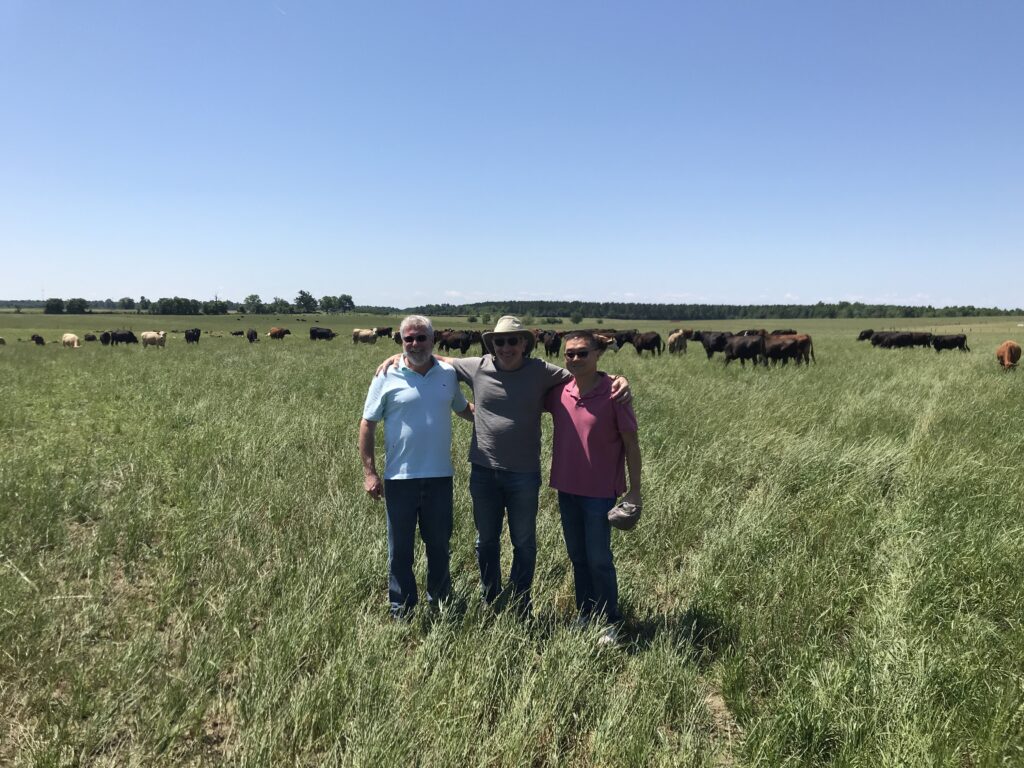Exploring the Grass-Fed Value Chain: Blackdirt Farm Visit

June 4, 2019
On a sunny couple of days in May, stakeholders across the grass-fed value chain – investors, entrepreneurs, professors, regenerative ag specialists, grass-fed thought leaders and farm managers – met at Little Springs Farm in Covington, GA and Georgia Pastures Farm in Bartow, GA to learn about and explore the Blackdirt Farms operation.
Some key learnings:
- Soil organic matter is the key to regenerative agriculture and carbon sequestration
- No-till grass-fed beef operations increase soil organic matter through root development and revitalization of surface and sub-surface ecosystems
- One UGA study showed 3x as much carbon sequestration at farms like Georgia Pastures vs. conventional practices in Georgia
- Studies indicate that the intensive rotational grazing grass-fed operations can sequester up to 10 tons of carbon/year when regenerating annual cropland into permanent pasture
- For every 1-inch increase in soil organic matter, land can retain 1 additional acre-inch of rain
- Through regenerative practices, a grass-fed beef farm in Georgia was able to increase carrying capacity by 60% over 3 years
- Georgia land (formerly forest), historically at 3.5% soil organic matter has dropped to as low as 1% after being subjected to mismanagement and intense heat and humidity. Advanced grass-fed cattle operations in Georgia have generated as high as 8.5% soil organic matter
Little Springs Farm is a cow/calf operation on 1,000 acres of perennial pastureland. This serves as the upstream portion of the supply chain to ensure sustainable and animal-friendly practices along with optimal grass-fed genetics Blackdirt’s continuing efforts for further carbon mitigation via silvopasture were also on display.
Georgia Pastures is a finishing operation on 620 acres of irrigated pastureland. With a 600 head carrying capacity and 1,200 head annual capacity, this farm is the final stage of the supply chain before processing and, at its size, is one of the larger commercial grass-fed finishing operations in the U.S.
Visit Blackdirt Capital to learn more.



